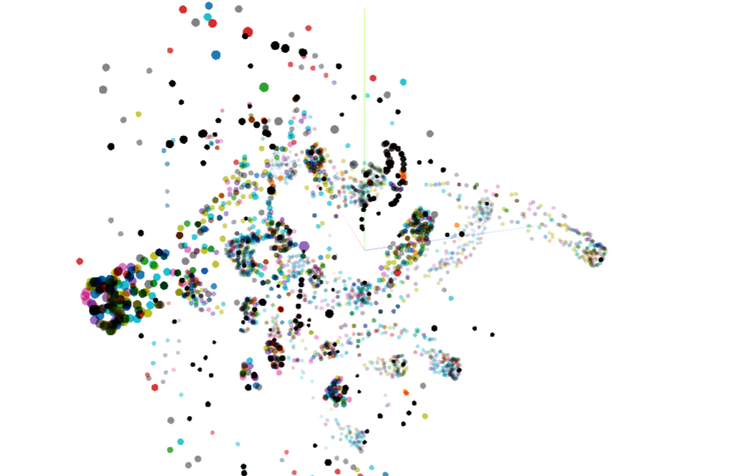Battling News Fatigue in the Digital Age

I remember a time when I eagerly consumed every news cycle, believing that staying constantly informed was a civic duty. But as the years passed, and the news became a relentless barrage of crises and controversies, I found myself increasingly burdened by a sense of dread. The constant stream of sensational headlines and dire predictions began to take its toll, leaving me feeling stressed, overwhelmed, and utterly exhausted. This, I discovered, is a common affliction in our hyper-connected world: news fatigue. It's not just about being tired of the news; it's about the psychological toll it takes, the feeling that the world is perpetually on fire, and that we are powerless to extinguish the flames.
The digital age, with its 24/7 news cycle and endless stream of notifications, has created an environment where we are constantly bombarded with information. While staying informed is essential, the sheer volume and intensity of news can lead to psychological fatigue, impacting our mental and emotional well-being. The constant exposure to negativity, the feeling that every breaking news alert signals another catastrophe, can create a sense of learned helplessness. We begin to feel like we are constantly reacting, never proactively shaping our own lives or the world around us.
Here are some strategies for managing news fatigue:
- Set Firm Boundaries:
- It's not enough to simply "limit" your exposure. You need to establish firm boundaries. Designate specific, limited times for checking the news, and treat those times like any other scheduled appointment. Avoid the temptation to scroll endlessly during idle moments.
- Turn off push notifications from news apps and social media. These constant interruptions disrupt your focus and create a sense of perpetual urgency.
- Remember that important information will find its way to you. The world will not fall apart if you miss a few news cycles.
- Diversify Your Sources and Seek Context:
- Relying on a single news source, even a reputable one, can create an echo chamber, amplifying negative or sensationalized information. Seek out diverse perspectives and reputable sources that offer balanced and nuanced reporting.
- Look beyond the headlines. Delve into in-depth articles, documentaries, and long-form journalism that provide context and analysis.
- Actively seek out news outlets and journalists that report on positive developments, solutions-oriented initiatives, and stories of human resilience.
- Focus on Solutions and Actionable Information:
- While it's important to be aware of problems, dwelling only on the negative can be emotionally draining. Seek out news stories that highlight solutions, positive actions, and individuals or organizations making a difference.
- Look for information that empowers you to take action, whether it's volunteering, donating, or simply engaging in informed conversations with others.
- Prioritize Self-Care and Mental Well-being:
- Engage in activities that promote relaxation and well-being, such as exercise, meditation, or spending time in nature. These activities help to counteract the stress and anxiety caused by constant news consumption.
- Prioritize sleep, healthy eating, and social connection. These fundamental aspects of self-care are essential for maintaining mental and emotional resilience.
- Taking care of yourself is not a luxury; it's a necessity. It allows you to be more effective in all areas of your life.
- Take Extended Breaks and Digital Detoxes:
- Completely disconnect from the news and digital devices for extended periods of time. Allow yourself to recharge and regain perspective.
- This could involve a day, a weekend, or even a week-long digital detox. During these breaks, engage in activities that bring you joy and relaxation.

News publishers also have a responsibility to address news fatigue and restore trust in journalism. Here are some ways they can improve:
- Prioritize Accuracy, Context, and Responsible Reporting:
- Avoid clickbait headlines and exaggerated claims. Focus on providing accurate, reliable, and contextualized information.
- Present the facts objectively, and allow readers and viewers to draw their own conclusions.
- Resist the temptation to sensationalize or dramatize events for the sake of attracting attention.
- Offer In-Depth Analysis and Nuanced Perspectives:
- Provide in-depth analysis and context to help readers and viewers understand complex issues.
- Avoid oversimplifying or presenting information in a binary way. Acknowledge the complexities and nuances of real-world events.
- Highlight Solutions, Positive Developments, and Constructive Dialogue:
- Balance negative news with stories of progress, positive change, and constructive dialogue.
- Showcase individuals and organizations working to address pressing challenges.
- Promote civil discourse and encourage respectful debate.
- Curate the News and Reduce the Volume of Information:
- Prioritize the most important and relevant stories, and avoid overwhelming readers and viewers with a constant barrage of updates.
- Offer curated news digests and summaries that provide a concise overview of key developments.
While the constant flow of news can feel overwhelming, remember that you have the power to curate your information intake and prioritize your well-being. By setting boundaries, diversifying your sources, and focusing on solutions, you can reclaim a sense of agency and navigate the news landscape with greater resilience. Let's keep a mindful approach to news consumption, one that empowers us to stay informed without sacrificing our mental and emotional health.
Questions for Reflection:
- How has news fatigue affected you and your ability to focus?
- What are some specific strategies you can implement to create healthier news consumption habits?
- How can we foster a more responsible and constructive media environment?
Try taking a break from the news for a day or two. Use that time to engage in activities that bring you joy and relaxation. Share your experiences and strategies for managing news fatigue in the comments below, and let's create a community of support and resilience.





Comments ()